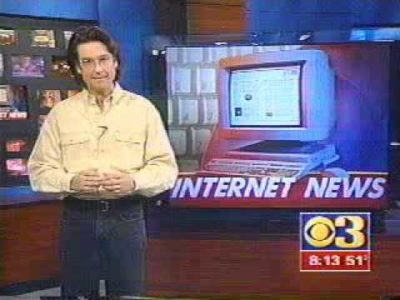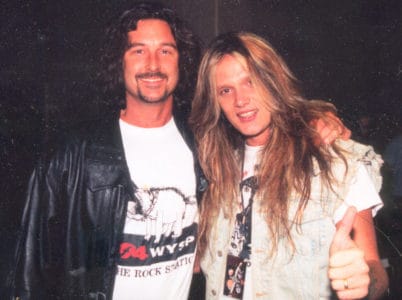 Local media is on a tear to downsize, right-size and lay-off. It has to. For survival sake.
Local media is on a tear to downsize, right-size and lay-off. It has to. For survival sake.
Even if you’re the best writer, reporter, sales manager or truck driver, your job security has never been so insecure.
That’s why it might be time for a little ‘personal brand’ tune-up. That used to mean updating your resume. Unfortunately, that move will only get you so far.
Do you have a really smokin’ Linked-in page with the best keywords? How about a search optimized website or blog that shows off your skills? How do you look when a recruiter Googles your name?
Would you hire you?
If you need a little help in this area, feel free to reach out. We can help. In the meantime, read this:
The following is an excerpt from the book Job Searching With social media for Dummies:
1. Google Has Replaced the Résumé
Recruiters are now using Google and LinkedIn searches to find talent, instead of paying for job-board or talent databases, like they used to do. In fact, many companies are even mandating that every new application go through a Google screening process. So that means the first page of your Google results matter much more than they ever did before.
The problem is that what Google delivers on a search for your name isn’t regulated and is very difficult for the user to control. After all, background checks are very carefully regulated in order to avoid the types of misunderstandings happening now, online. Furthermore, Google’s algorithm changes several times a year. So what can you do about it?
The last thing you should do is ignore this reality. So the job seeker has two courses of action. First, you become a publisher of your own content and flood Google’s spiders with lots of great keyword rich content. Second, you control the results on a Google search.
2. A Summary is Enough
Today, the resume is used mostly in the screening process while actual decisions are made after interviews. And because there are so many candidates competing for each job, HR people (or hiring managers if they are tasked with recruitment) often scan resumes very briefly. In fact, the average time on a resume is 30 seconds. Most resumes today are no longer than two pages but still include the expanded sections of yesterday’s longer resumes. So keep it short and take out that extra bullet point.
3. Social Proof is a Must
Social proof, testimonials or recommendations seriously reduce the perceived risk of you as a candidate. The most costly mistake a hiring manager can make is to hire the wrong person. Some say that if a new-hire leaves within three months, it costs the organization one and half that person’s annual salary. And with the economy as tight as it is, you can understand why hiring managers are so risk averse.
Set their mind at ease by offering testimonials on your resume and LinkedIn profile. A good standard is to have the number of recommendations equal to 10% of the number of contacts in your network.
4. Resumes and Cover letters are Not Read on Paper Anymore
Most organizations are not receiving paper résumés and when they get them via email or their application system, they don’t print them. So expect your résumés and cover letter to be read on a computer screen. This means you have to format your documents in a way that makes screen-scanning easy.
- Use headlines to break up content
- Keep paragraphs short
- Use bold and italics to emphasis key points
- Make sure there is plenty of white space on the page
- Use color tastefully, consider adding logos, icons or charts
5. Relationships First, Résumé’s Second
Résumés are not used as introductory documents much these days. In fact, “send me your résumé” is often an after thought after an introduction is made. And if an introduction is made online, then your online profile offers much more information than a résumé. So shift your priorities from, “Oh crap, I have to get my résumé done!” to, “Oh crap, where can I meet some more people today?” or “Oh crap, how can I look better online”.
6. Employers Only Care About What They Want
In years past, a resume or job application was focused on what the job seeker wanted. This is not true any more. Now an application, resume or cover letter must speak to what value the seeker can bring to the organization. How can you bring value to the company and how soon can the company realize that value. Keep this in mind as you write your online profiles.
7. Don’t Mind the Gap
Large gaps in your resume are not as important as they used to be. Not only do employers today realize than millions of great and wonderful people got laid off, they also appreciate it when candidates showed initiative and tried to start their own thing. Some analysts even predict that by 2020, most professionals will use the internet to generate multiple streams of income in addition to their day job.
8. Nouns are the New Currency
Screening software and LinkedIn talent searches have introduced an unexpected element to the way a résumé should be written. Because these tools rely on nouns or keywords to deliver search results to recruiters, the resumes with the right combination of nouns often win. Although these tools are expected to become much more sophisticated in the next two or three years, how you find and use keywords is now a very important part of your job search.
If you want to succeed in today’s job search, make a commitment to learn how to research keywords and how to use them appropriately on the page. Of course those powerful verbs your college career adviser gave you are still important too.
9. Everyone Has a Personal Brand, Yes, Everyone
Ten years ago, not many people even knew what a personal brand was, let alone was having one really that accessible. These days, even if you don’t know what it is, you still have one. And because recruiters and hiring managers are just looking for red flags, inconsistencies in your image or messaging will prevent you from passing screening. Even if you never touched a computer in your life, you have a personal brand as well as an online reputation. So you have to decide, will you be in control of your image or will someone else?
10. Typing isn’t a Skill Anymore
Being able to type used to be a skill people would highlight on their résumés. Now, you have to know how to type just to have a résumé. What really matters is how well you’ve prepared yourself for the application. You have access to more information about a company then generations past. As a result, expectations for preparedness are much higher. To really shine, focus on customizing each résumé and cover letter. It’s better to send off a few very targeted applications then it is to spray and pray.

